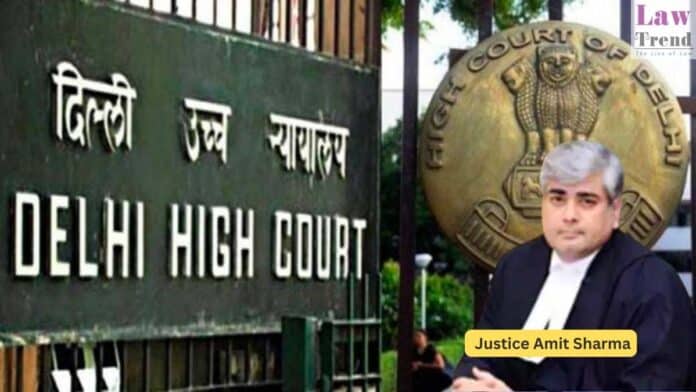The Delhi High Court on Tuesday granted bail to a primary school teacher who was arrested in 2015 for being part of a “network” involved in alleged anti-national activities supported by Pakistan-based intelligence operatives.
According to the prosecution, the accused was involved in the process of collection of information regarding deployment of the Indian Army and the Border Security Force in Jammu and Kashmir, and passing the same to persons across the border, thus endangering national security.
Justice Amit Sharma said the accused, who was facing trial under Official Secrets Act for serious and grave offences, satisfied the requirement of section 436A of the Code of Criminal Procedure (CrPC) for bail after undergoing half the sentence provided for the offence he is charged with.
The court said although the prosecution made an assertion with regard to the likelihood of the accused affecting the security of the country and the chance of his absconding if released, no material was placed on record to substantiate the aforesaid apprehension and the delay in trial also cannot be attributed to the accused.
“The offences for which the present applicant is charged with are, no doubt, serious and grave in nature and he will continue to face trial. It is noted that only 20 prosecution witnesses (all official in nature) were cited in the charge sheet and despite passage of seven years, only 15 of them have been examined so far,” said the court.
“As per the nominal roll dated 03.02.2023, the applicant has been in judicial custody for seven years, one month and 24 days. This court is of the considered opinion that the case of the applicant is covered by the provision of Section 436A of the CrPC and therefore, the present application stands allowed,” it said.
The judge noted a Supreme Court decision which said “if the period of deprivation pending trial becomes unduly long, the fairness assured by Article 21 would receive a jolt” and stated that section 436A of the CrPC was a beneficial provision for addressing the right to a speedy trial guaranteed by Article 21 of the Constitution and no exception to the provision has been introduced under the Official Secrets Act.
The prosecution opposed the bail plea and said the transcript of a call between the accused and a co-accused revealed that he was involved with persons who passed on sensitive information across the border and the offences are prejudicial to sovereignty, national security and integrity of the country.
It was also stated that the transcript reflected that the present accused, who was found to have received money, was planning to visit Pakistan with a co-accused and certain classified documents related to the Indian Army were recovered also from a co-accused.
The court observed that no data had been brought on record relating to any transmission or possession of classified information from the present accused and the transcript of the conversation was “disputed” and its veracity was thus a matter of trial.
“A perusal of the said transcript shows that there is no reference therein relating to any classified information which is the subject matter of trial in the present case. The transcript also does not reflect any date/time of the alleged conversations either,” the court said.
It also said the period of the pandemic cannot be excluded while computing the detention period of the accused and in spite of directions for an expedited trial by the high court, the trial has not concluded.
The court said the applicant was admitted to bail on a personal bond of Rs 1,00,000 along with two sureties of the like amount.
It noted that the applicant was stated to be a resident of Rajouri in Jammu and Kashmir and in case of any change of address, he would inform the investigating officer and trial court about it.
The court also directed him to report at the local police twice in a week and be released after recording of his presence and completion of all the necessary formalities.
It further asked the accused to not leave the country without permission or tamper with evidence.
It directed the accused to give all his mobile numbers to the Investigating Officer and keep them operational at all times and “drop a pin on the Google map” to ensure that his location is available to the Investigating Officer.




